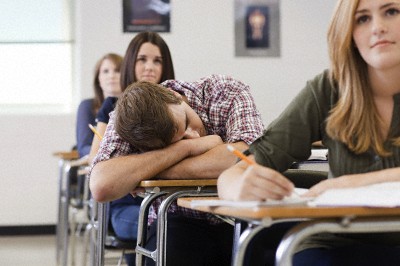College students don’t make getting enough sleep a priority. Why would they when there are late night pizza runs, last minute cram sessions, and weekend keg parties to participate in? But like most kids, these students don’t realize what their chronic lack of sleep is doing to them mentally and physically.
Why Aren’t College Kids Sleeping?
When 20 percent of students are reporting that they are having at least one all nighter a month, it’s no wonder why an increasing number of college kids are reporting difficulty focusing and feeling more depressed and anxious. Experts have long thought of sleep as a way for the body to restore itself but it’s also been shown recently that it also helps the mind create and retain memories, as well as help with different kinds of problem solving. While there hasn’t been enough research to validate this, some experts believe that certain stages of sleep allow the brain to get rid of different byproducts from the brain being used all day.
But why exactly aren’t college students sleeping? While all nighters are a typical contributor, it’s more than just staying up late and getting up early. Their quality of sleep is decreasing because of educational pressures, unlimited opportunities for fun, and a lack of structure. This is particularly true in freshmen. They’re independent for the first time in their life and the responsibilities that accompany this freedom can make it difficult to sleep because of the stress and excitement. There’s no adult to tell them when to go to bed or how to responsibly attend to an overwhelming amount of responsibilities they’ve never had before.
What Does Lack of Sleep Do to the Body?
It’s more than irritability, dozing off in class, and bags under their eyes. A sleep debt occurs over successive nights of sleep deprivation. Students might notice mood changes, often for the worse. They become more irritable and less likely to concentrate in class. REM sleep is critical for a person’s ability to remember new information, and with broken sleep patterns or an overall lack of sleep, many students aren’t getting a full REM cycle. REM occurs towards the end of the night and only sleeping a few hours makes it almost impossible to get enough REM sleep to be conducive to memory retention.
How Students Can Sleep Better Despite Stress
Learning to cope with stress is a passage into adulthood, but in the meantime, college students need to learn how to fall asleep and stay asleep while learning balance. Experts recommend doing something active at least once a day. The exertion will tire the body, but it will also make the mind crave the quiet and rest sleep can provide. They also say to skip the snooze button.
No matter how broken the sleep was the night before, it is impossible to make up for any lost sleep during those morning hours because the potential for REM has come and gone. If they’re waking up in the middle of the night and aren’t falling asleep within 20 minutes of waking up, they should get out of bed and do something relaxing, like reading in a dim light or having a snack with carbohydrates and protein.
College isn’t just about getting good grades. College is a time for adolescents to learn how to be adults, and to maintain the best cognitive function, they need sleep to learn, develop, and grow.



